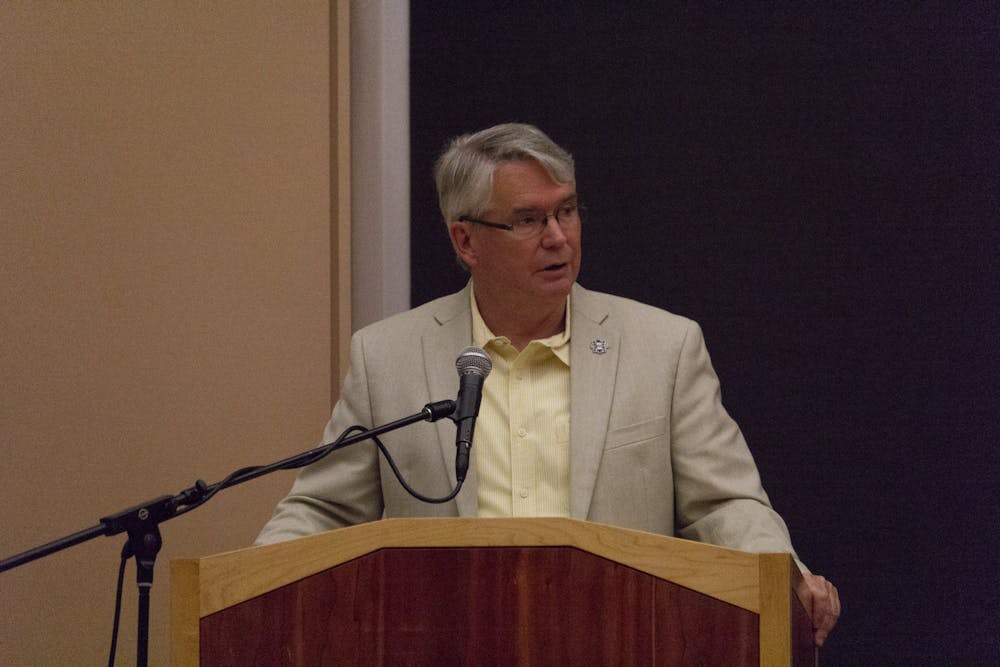Bloomington Mayor John Hamilton announced a proposed income tax increase for Monroe County to help combat climate change Jan. 1.
According to city spokesperson Yaël Ksander, the proposal would raise the Monroe County income tax from 1.345% to 1.845% and result in $16 million that could be used to fund environmental projects such as expanding the city’s bus routes and bike trails.
This proposal is a clear step in the right direction. It is far past time for the City of Bloomington to recognize climate change as the existential threat that it is and take action.
However, applying an additional 0.5% flat tax on all people living in Monroe County would have a disproportionate effect on working class people, many of whom are already living paycheck to paycheck.
Even though no specifics have been ironed out, the proposal should give Bloomington residents pause. If Hamilton is serious about creating a fund to fight climate change that works for all people in Monroe County, he would propose a progressive tax, in which the tax rate increases as the taxable amount increases.
Climate change has become one of the top national issues for voters in recent years, within both the Democratic Party’s presidential primary and the nation as a whole. As the issue has gained prominence, climate justice has become something that must be tied to any climate change plan.
According to Mary Robinson, the former president of Ireland and current chair of The Elders, an organization of public figures working to solve humanity’s toughest issues, climate justice demands “a shift from a discourse on greenhouse gases and melting ice caps into a civil rights movement with the people and communities most vulnerable to climate impacts at its heart.”
Working class people are not the major perpetrators of the climate crisis. A 2017 report published in Environment and Behavior magazine found that income is the primary determinant of a person’s ecological footprint. But while they don’t hold the majority of the responsibility for the crisis, working people are projected to bear the bulk of its effects. Philip Alston, the United Nations special rapporteur on extreme poverty and human rights, warned in 2019 that the way in which rich people will be able to escape the harmful effects of climate change will create a “climate apartheid” system.
According to the 2010 Census, 25.5% of people living in Monroe County, including 10.6% of families, live below the federal poverty line. Implementing a 0.5% income tax increase would have detrimental repercussions for people across the county.
It is uplifting to see that Hamilton recognizes the climate crisis as a major issue facing our world and wants to take action at the city and county level to combat it. The way that he has chosen to go about it, though, betrays the values of the climate movement, particularly that of climate justice.
Working class people should not be put under greater economic strain in order to fund the fight against a crisis they did comparatively little to create. If he is genuinely interested in both environmental and economic justice, Hamilton needs to revise his proposed tax to be progressive.
Jerrett Alexander (he/him) is a freshman studying international relations and environmental sustainability. He currently sits on the Bloomington Commission on Sustainability.






